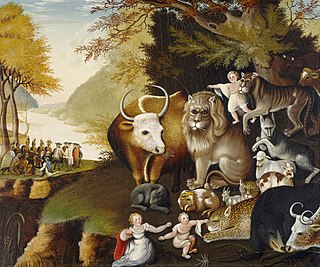
George Keith was a Scottish religious leader, a Presbyterian turned Quaker turned Anglican. He was born in Peterhead, Aberdeenshire, Scotland, to a Presbyterian family and received an M.A. from the University of Aberdeen. Keith joined the Religious Society of Friends (Quakers) in the 1660s, accompanying George Fox, William Penn, and Robert Barclay on a mission to the Netherlands and Germany in 1677.

Thomas Sheridan is a Scottish politician who served as convenor of Solidarity from 2019 to 2021. He previously served as convenor of the Scottish Socialist Party (SSP) from 1998 to 2004 and as co-convenor of Solidarity from 2006 to 2016. He was a Member of the Scottish Parliament (MSP) for the Glasgow region from 1999 to 2007.

The Yearly Meeting of the Religious Society of Friends (Quakers) in Britain, also known as Britain Yearly Meeting, is a Yearly Meeting of the Religious Society of Friends (Quakers) in England, Scotland, Wales, the Channel Islands and the Isle of Man. It is the national organisation of Quakers living in Britain. Britain Yearly Meeting refers to both the religious gathering and the organisation. "Yearly Meeting", or "Yearly Meeting Gathering" are usually the names given to the annual gathering of British Quakers. Quakers in Britain is the name the organisation is commonly known by.

Edinburgh University Students' Association (EUSA) is the students' union at the University of Edinburgh, Scotland. The Association's aim is the advancement of education of Edinburgh students by representing and supporting them, and by promoting their interests, health and welfare within the community. It is led by a team of five elected student sabbatical officers.

The testimony of peace is the action generally taken by members of the Religious Society of Friends (Quakers) for peace and against participation in war. Like other Quaker testimonies, it is not a "belief", but a description of committed actions, in this case to promote peace, and refrain from and actively oppose participation in war. Quakers' original refusal to bear arms has been broadened to embrace protests and demonstrations in opposition to government policies of war and confrontations with others who bear arms, whatever the reason, in the support of peace and active nonviolence. Due to this core testimony, the Religious Society of Friends is considered one of the traditional peace churches.
The Religious Society of Friends began as a proto-evangelical Christian movement in England in the mid-17th century in Lancashire. Members are informally known as Quakers, as they were said "to tremble in the way of the Lord". The movement in its early days faced strong opposition and persecution, but it continued to expand across the British Isles and then in the Americas and Africa.
The Friends World Committee for Consultation (FWCC) is a Quaker organisation that works to communicate between all parts of Quakerism. FWCC's world headquarters is in London. It has General Consultative NGO status with the Economic and Social Council of the United Nations since 2002. FWCC shares responsibility for the Quaker UN Office in Geneva and New York City with the American Friends Service Committee and Britain Yearly Meeting.
In the Religious Society of Friends (Quakers), a monthly meeting or area meeting is the basic governing body, a congregation which holds regular meetings for business for Quakers in a given area. The monthly meeting is responsible for the administration of its congregants, including membership and marriages, and for the meeting's property. A monthly meeting can be a grouping of multiple smaller meetings, usually called preparative meetings, coming together for administrative purposes, while for others it is a single institution. In most countries, multiple monthly meetings form a quarterly meeting, which in turn form yearly meetings. Programmed Quakers may refer to their congregation as a church.
Eric Baker was a British activist and one of the founders of the human rights group Amnesty International, and the second Secretary-General of the organization. He was also a founder of the Campaign for Nuclear Disarmament (CND).
Quaker Peace & Social Witness (QPSW), previously known as the Friends Service Council, and then as Quaker Peace and Service, is one of the central committees of Britain Yearly Meeting of the Religious Society of Friends - the national organisation of Quakers in Britain. It works to promote British Quakers' testimonies of equality, justice, peace, simplicity and truth. It works alongside both small local and large international pressure groups.
Fairtrade Fortnight is an annual promotional campaign which happens once every year, organized and funded by the Fairtrade Foundation to increase awareness of Fairtrade products. It makes use of volunteers who support the goals of Fairtrade but who may also be committed to the more general concepts of fair trade, ethical trading or concerned by development issues. The concept was pioneered by the Fairtrade Foundation in the United Kingdom, initially held in 1997 in Scotland and directed by Barnaby Miln.

Quakers are people who belong to the Religious Society of Friends, a historically Protestant Christian set of denominations. Members of these movements are generally united by a belief in each human's ability to experience the light within or "answering that of God in every one". Some profess a priesthood of all believers inspired by the First Epistle of Peter. They include those with evangelical, holiness, liberal, and traditional Quaker understandings of Christianity. There are also Nontheist Quakers, whose spiritual practice does not rely on the existence of God. To differing extents, the Friends avoid creeds and hierarchical structures. In 2017, there were an estimated 377,557 adult Quakers, 49% of them in Africa.
The Quaker movement began in England in the 17th Century. Small Quaker groups were planted in various places across Europe during this early period. Quakers in Europe outside Britain and Ireland are not now very numerous although new groups have started in the former Soviet Union and satellite countries. By far the largest national grouping of Quakers in Europe is in Britain.
A Book of Discipline may refer to one of the various books issued by a Yearly Meeting of the Religious Society of Friends, setting out what it means to be a Quaker in that Yearly Meeting. The common name for this book varies from one Yearly Meeting to another and includes Book of Discipline, Faith and Practice, Christian Faith and Practice, Quaker Faith and Practice, Church Government and Handbook of Practice and Procedure. Each Book of Discipline is updated periodically by each Yearly Meeting according to the usual practice of decision making within the Religious Society of Friends.
Quaker Life is a central department of the Yearly Meeting of the Religious Society of Friends (Quakers) in Britain, the national organisation of Quakers in England, Wales, Scotland, the Isle of Man and the Channel Islands. Its work is to develop the spiritual life of Quakers in Britain, and the running of Quaker Meetings within Britain.
Iain James Martin is a Scottish political commentator, author and public speaker. He writes a weekly column for The Times and is co-founder, editor and publisher of Reaction - a news site providing analysis and opinion on politics, economics and culture. He is a former editor of The Scotsman and Scotland on Sunday, and an author of books on the financial crisis and the City of London.

Matthew Scott is a Scottish rugby union player with 40 caps for Scotland who plays for Leicester Tigers in England's Premiership Rugby. His regular playing position is Centre.

Housmans is a bookshop in London, England, and is one of the longest-running radical bookshops in the United Kingdom. The shop was founded by a collective of pacifists in 1945 and has been based in Kings Cross, since 1959. Various grassroots organisations have operated from its address, including the Gay Liberation Front, the Campaign for Nuclear Disarmament, and London Greenpeace. Housmans shares its building with its sister organisation Peace News.
Ann Wigglesworth fair trade pioneer, educator and Aberdeen Woman of the Year 1985.







